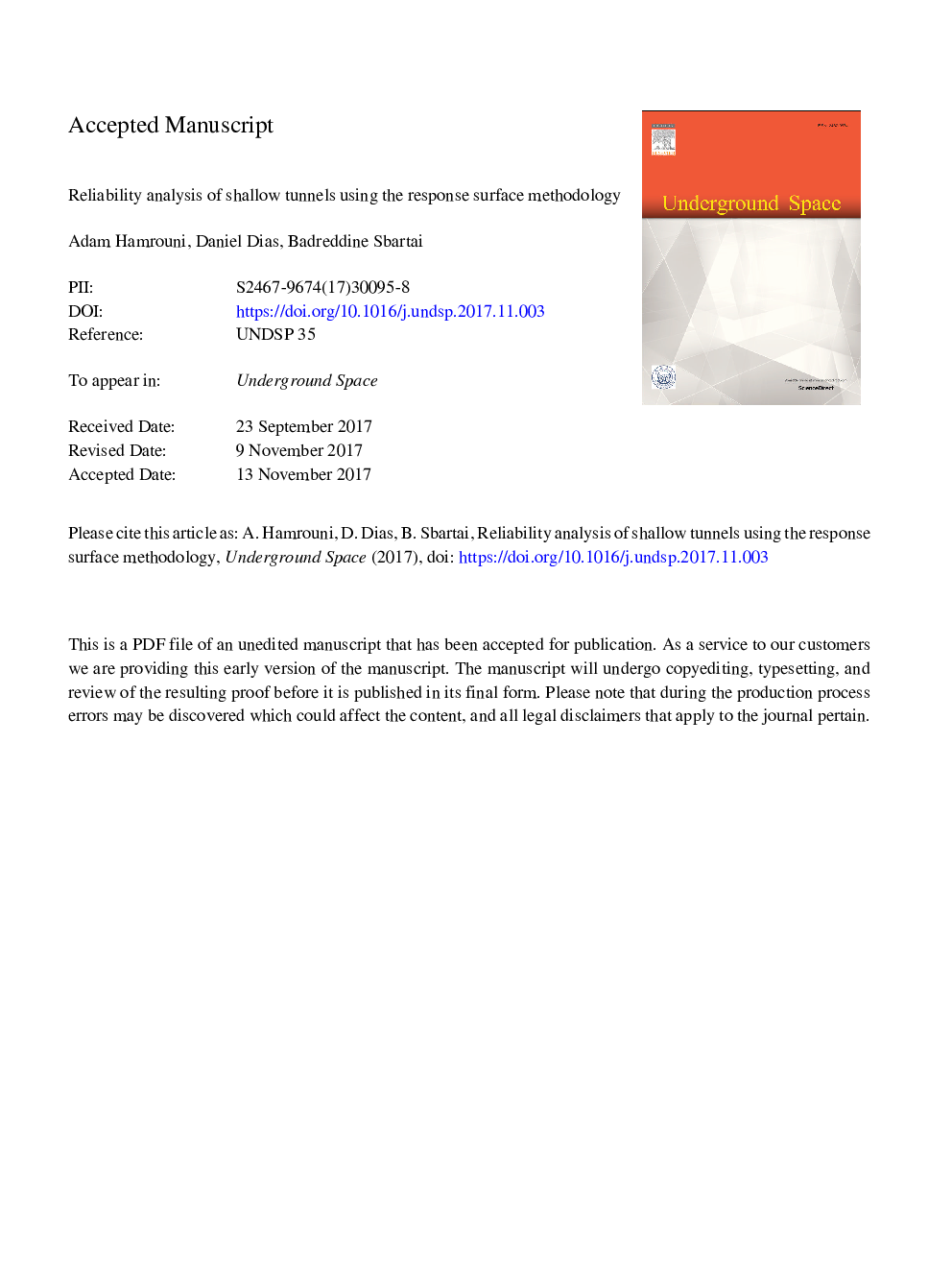| Article ID | Journal | Published Year | Pages | File Type |
|---|---|---|---|---|
| 6784391 | Underground Space | 2017 | 40 Pages |
Abstract
A probabilistic study of a circular tunnel excavated in a soil mass using the response surface methodology (RSM) is presented. A deterministic model based on two-dimensional numerical simulations in a transversal section is used, and the serviceability limit state (SLS) is considered in the analysis. The model permits the surface settlement curve and the bending moment on the tunnel lining to be obtained. Only the soil parameters are considered as random variables. The first-order reliability method (FORM) and the response surface methodology (RSM) are utilized for the assessment of the Hasofer-Lind reliability index (βHL) optimized by the use of a genetic algorithm (GA). Two assumptions (normal and non-normal distribution) were used for the random variables. The comparison analysis considering a correlation between the friction angle and the cohesion indicates that the results are conservative if a negative correlation among strength parameters is not taken into account. The assumption of a non-normal distribution for the random variables has an important effect on the reliability index for the practical range of values of surface settlements.
Related Topics
Physical Sciences and Engineering
Earth and Planetary Sciences
Geotechnical Engineering and Engineering Geology
Authors
Adam Hamrouni, Daniel Dias, Badreddine Sbartai,
